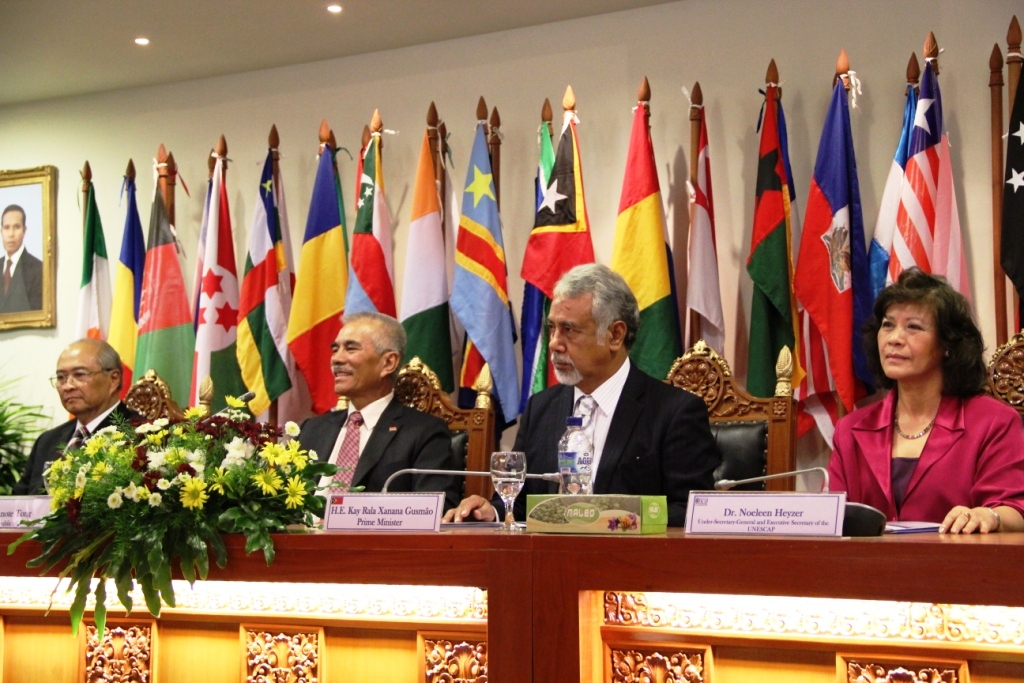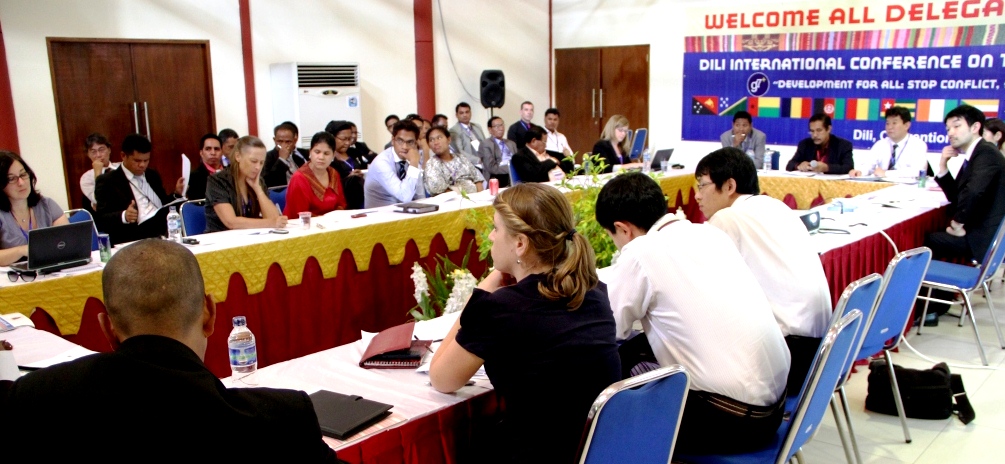Timor-Leste Hosts International Conference on Post-2015 Development Agenda
2013.03.13
The government of the Democratic Republic of Timor-Leste organized an International Conference on the Post-2015 Development Agenda entitled “Development for All: Stop Conflict, Build States and Eradicate Poverty” in Dili, the capital of Timor-Leste, for three days from February 26 to 28.
The conference brought together government and civil society representatives from the g7+ group of fragile states, Pacific island countries, and the group of Portuguese-speaking African countries (PALOP), a total of 48 countries attending. From the host country, Prime Minister Kay Rala Xanana Gusmão, Finance Minister Emilia Pires and other government officials attended the event. Research Associate (RA) Ryutaro Murotani from JICA-RI also joined the conference.
This international conference aimed to reach a broad consensus on how the specific development challenges faced by fragile and conflict-affected states should shape the Post-2015 global development framework. The plenary meeting centered on issues of conflict and fragility in fragile and conflict-affected countries and of natural disasters and climate change in Pacific island countries.

Opening Remarks
Murotani took part in discussions at various venues including the breakout session “Peace-Building through Human Security and Personal Safety.” In the session, he pointed out that, in order to focus on the people who face severe crises including poverty and to deal with downside risks such as natural disasters and conflicts, “human security” could work as a guiding principle for the Post-2015 Development Agenda.
The participants of this session discussed the various threats to peace and security—poverty, natural disaster and conflict—and agreed that although security is multifaceted and prioritizing them is difficult, security for people is essential; therefore, the validity of “human security” was confirmed. The participants mentioned this concept in many occasions during the conference.
Besides this session, Murotani exchanged opinions with various concerned parties to introduce research outcomes related to the Post-2015 Development Agenda undertaken at JICA-RI.
On the final day of the event, all the participants adopted the Dili Consensus, where they agreed that for the development of all countries including fragile states, it is important to enhance the efforts in major four areas that are not adequately treated in the MDGs: inclusive economic growth, state effectiveness, peace and justice, and climate change and environmental management. It was also recognized that mechanisms for regional, sub-regional and cross-regional cooperation including South-South cooperation are important to formulate development strategies.
The international conference not only provided an opportunity to reflect the opinions of fragile states and Pacific island countries but also served as a venue to debate numerous issues including the importance of ownership for each country and promoting the implementation of the New Deal for Engagement in fragile states to ensure “Development for All.”


事業事前評価表(地球規模課題対応国際科学技術協力(SATREPS)).国際協力機構 地球環境部 . 防災第一チーム. 1.案件名.国 名: フィリピン共和国.

事業事前評価表(地球規模課題対応国際科学技術協力(SATREPS)).国際協力機構 地球環境部 . 防災第一チーム. 1.案件名.国 名: フィリピン共和国.

事業事前評価表(地球規模課題対応国際科学技術協力(SATREPS)).国際協力機構 地球環境部 . 防災第一チーム. 1.案件名.国 名: フィリピン共和国.

事業事前評価表(地球規模課題対応国際科学技術協力(SATREPS)).国際協力機構 地球環境部 . 防災第一チーム. 1.案件名.国 名: フィリピン共和国.

事業事前評価表(地球規模課題対応国際科学技術協力(SATREPS)).国際協力機構 地球環境部 . 防災第一チーム. 1.案件名.国 名: フィリピン共和国.
scroll